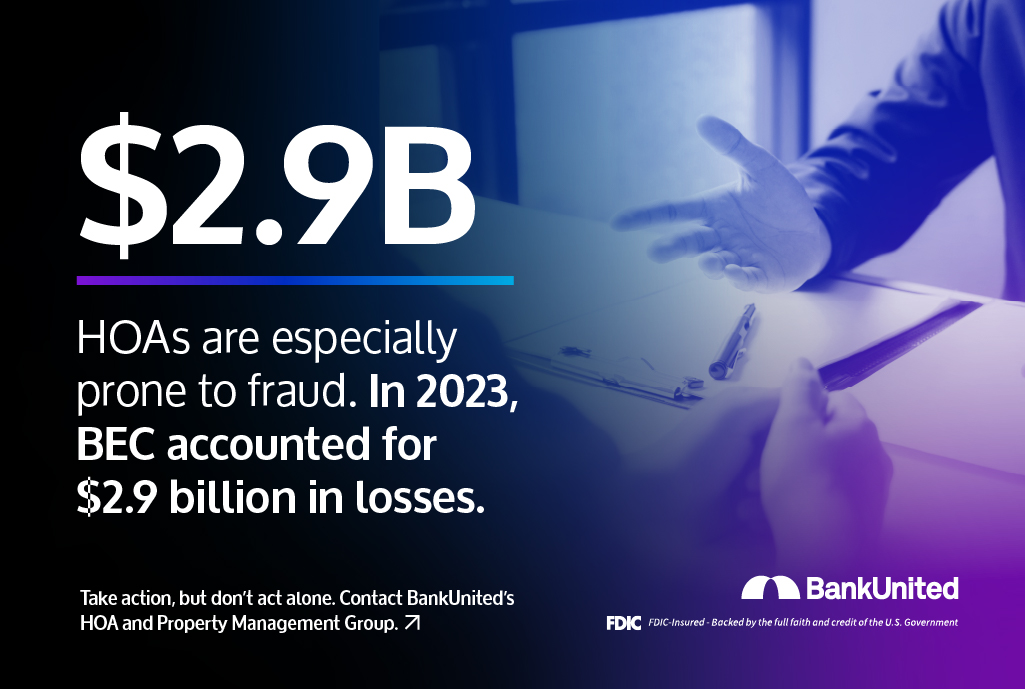All Resources
5 Ways HOAs Can Prevent Financial Fraud

Preventing HOA fraud
HOAs and property management companies can reduce their risk of BEC and other fraud by understanding the threat—and implementing practices and tools to safeguard their organization’s finances. Hallinan provided the following tips to reduce HOA fraud risk:
- Vet new vendors. “This is especially important when making that first payment,” Hallinan says. If it’s an electronic payment, call the vendor to verify the payment instructions and validate the account numbers. The same goes for paper checks; verify the mailing address via phone. You don’t want to rely on email as your only form of communication.
- Verify any changes in payment instructions.Similarly, if an existing vendor sends an email to change bank account numbers or alter a payment method, call them back to confirm that request. It’s also important that you make the phone call, especially if you don’t know the vendor personally. Sometimes scammers will call and impersonate employees. A call back to the company’s number that you have on file adds another level of security.
- Explore cyber insurance. Many insurance companies now offer insurance that covers damages incurred by cyber fraud and online crime. Hallinan notes that an HOA and its management company will likely have insurance. Check with the insurance company about the policy’s fraud crime coverage and inquire whether a separate cyber liability policy makes sense for your organization.
- Implement procedural checks and balances. HOA board members should understand who can access which accounts and have authorization to make payments. Hallinan says it’s best practice to ensure at least two board members have access to the bank accounts. Many HOAs also have a managing agent or property management firm to staff daily operations, and those individuals have access to the bank accounts and can provide visibility to board members in addition to the monthly financial reports. It’s a balance between keeping the circle small enough to remain safe and enabling enough permissions that payments can be made in a timely fashion.
- Leverage banking tools and technology. BankUnited’s treasury solutions provide HOAs and property management groups with automated fraud prevention tools that make monitoring and reducing risk easy. For example, Payee Positive Pay systematically compares checks presented for payment to issued check files to see if the payee’s name, dollar amount, check number, and date match. If they don’t, you receive an alert to approve the payment before it’s made. Similarly, ACH Alerts can provide protection to ensure only approved vendors can debit your account by presenting ACH debits prior to withdrawal to be approved.
SUGGESTED ARTICLES
All content is for informational purposes only and does not constitute legal, tax, or accounting advice. You should consult your legal and tax or accounting advisors before making any financial decisions.

